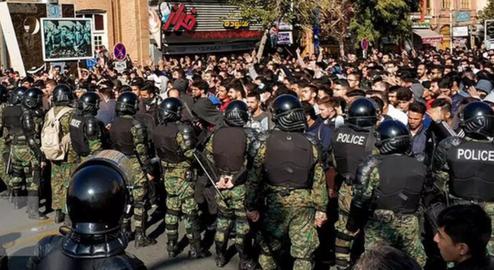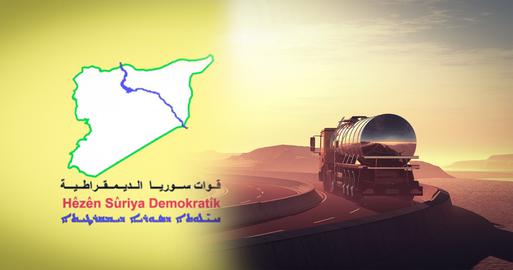As Iran marks one year since the huge protests across Iran and their suppression by security forces and police, prominent activist and former politician Faezeh Hashemi has spoken of her pessimism for the future of her country, and says she believes the only avenue Iranians have for change is through civil disobedience.
Speaking at a small gathering to mark the anniversary of the protests, the former parliamentarian and daughter of former president Akbar Hashemi Rafsanjani described why last year’s protests were so different from previous public outcries, and
Hashemi’s speech was recorded, and a copy of the audio clip was sent to IranWire.
***
"We also had popular protests in 2009 and January 2017, but the difference between November 2019 and other protests was that these were more widespread," Hashemi told the gathering. "People in more cities participated and demanded what they want. In economic protests, people's demands are more intense than in political protests.
“In January 2019 and November 2019 the demands were economic, and the protests were more intense. The repression was much more severe in November 2019, and this was unfortunately very sad."
Protests erupted in dozens of cities, starting in Khuzestan province, following a sudden increase in gasoline prices on November 15, 2019. Security forces, plainclothes agents and police responded with violence, resulting in the deaths of as many as 1,500 people, according to Reuters. A recent report by Amnesty International profiles 304 people killed in the protests.
Faezeh Hashemi, who was a member of parliament from 1996 to 2000 and has since been a political activist, says a year on from the protests, Iranians are still traumatized by the violent beatings and killings carried out by security forces, and by the fact that the government has failed to be accountable or publish any accurate statistics on the number of deaths. She says at the time, she and other activists met with people in Tehran who had been targeted, and that what was most shocking to her was the indiscriminate, arbitrary violence: in many cases, authorities fired both tear gas and live ammunition at people who were not even taking part in the protests. "For example, we went with a number of women around Tehran, near Mallard, where the number of injured was not small. A boy under the age of 18 had been killed trying to return home from school. It was as if the government was embarrassed and in a hurry. They fired blindly, as if just for the sake of it.
“The crackdown was not limited to killing and beating protesters. After the public protests, many people were arrested for participating. The families of those killed were threatened. Family members of detainees were arrested. The intimidation and threats have certainly had an impact, but it should be noted that the government is cracking down on protests so that people will be scared and not come out to the streets.”
Government-Sponsored Sabotage
Hashemi also talked about sabotage carried out by people with links to the government during the protests. ”For example, plainclothes or government-affiliated thugs broke glass so that the government could say it was dealing with rioters. This is an old-fashioned way of trying to both intimidate the people and influence public opinion about its repressive stance, claiming this stance was to deal with the rioters and not against those who are demanding something. Mr. Ahmadinejad has also mentioned this point recently."
Hashemi is referring to former president Mahmoud Ahmadinejad's interview with Abdolreza Davari and Ali Akbar Javanfekr, two advisers during his tenure. In an excerpt from the interview published on October 12, Ahmadinejad said the government had a policy of using organized thugs to sabotage popular protests, and that it was regarded as one of the tasks of security agents. "Thugs are organized and even armed, and when the people engage in a reasonable protest and a rightful protest against the elite, they come to set fire, create conflicts, spark riots and provide the ground for violent treatment of protesters.”
Hashemi reiterated that this was a well-worn strategy used by the regime. "This is an old policy, and they still do it. That is why people going to protest must be careful not to fall into their trap and separate themselves from these government agents.”
Even with these obvious risks, Hashemi has nonetheless called for people to protest and take part in civil disobedience to make their demands known. "Unfortunately, the regime has left no other choice. We cannot achieve what we want in a normal situation, that is, there is no ear to hear the logical demands and legal rights of the people. The only way they have left for us is civil disobedience.
"Every citizen has the right to take to the streets and protest," she said. ”They do not need a permit because it is allowed in the constitution. But there are other types of civil disobedience besides street protests. For example, in the case of people who oppose compulsory hijab or the law prohibiting women's cycling, women can take off their hijab or ride a bicycle. Criticism on social media and other media, and sharing these views, are also types of civil disobedience."
Women’s Rights and the Chances for a Hashemi Presidency?
At the meeting, a person in the audience said not voting was also a form of civil disobedience, and Hashemi agreed this had long been a strategy of those opposed to the government. "I think that as long as the current situation continues, one should not vote, unless there is a change,” she said.
There was also discussion of whether Hashemi would put herself forward as a candidate for the 2021 presidential elections, a rumor sparked by comments from Abbas Ali Kadkhodai, a spokesperson of the Guardian Council, who said the council was considering lifting the ban on women running. Hashemi, however, dismissed rumors that she might run. "I do not have such a plan, at least so far. Moreover, even if I had, I would be disqualified,” she said, acknowledging that this obstacle to women running had been in place for many years. “The revival of women's rights is what I am working for,” she added.
Hashemi also said the term "political rajol,” which appears in Article 115 of Iran’s constitution, calls into question the right of women to assume the presidency. The Arabic word term rajol is usually and most widely interpreted as “man,” so it has been taken as read that only men can serve as president, since Article 115 says a president must have the characteristics of a political and religious “man.” But some have said the term rajol can mean, or did mean in the past, “individual,” and such an interpretation would mean women are not excluded from holding the office of president. Faezeh Hashemi said that although she was working to support women’s rights, including their right to be president, “this does not mean that if this right is revived, I will run for the presidency or even vote in the elections."
But many critics of the system have called Abbas Ali Kadkhodai’s recent statement that women's candidacy for the presidency is unimpeded a pretext to drag people to the polls and a government tactic to gain more votes. Last week, however, Kadkhodai implicitly backtracked, saying there was no obstacle to women registering at the moment, but the further stages of the process were up for debate. On November 16, Ahmad Khatami, a hardline conservative cleric and a member of the Guardian Council, directly challenged the idea that women could be presidential candidates: ”the Constitution of the Islamic Republic stipulates that presidential candidates must be men, and the meaning of rajol is clear."
Commenting on the apparent U-turn, Hashemi said, "Mr. Kadkhodai took back his own words. Mr. Ahmad Khatami also says that rajol means rajol, while if we look for the meaning and interpretation of the word rajol in Dehkhoda or Moin dictionaries, and even in Quranic verses, we realize that the word rajol is not restricted to men."
At the gathering, Hashemi was asked: Do you hope for change and reform? She replied: "Unfortunately, I do not see a bright future for the Islamic Republic. Maybe if the principlists [conservatives, those people who regard themselves as following the principles on which the Islamic Republic was founded] take all the power and everything is done in their name, they will be able to do things step by step by monitoring the demands of the people and the situation will improve. Because in the current situation, one of their concerns is which group will take the credit. If they control everything, they may find incentives to become popular and make reforms, but it is unlikely that reformists will come to the forefront and do something — which means I do not see such a future."
She says this lack of momentum among reformists was evident during the November 2019 protests."The main position of the reformist parties and individuals was not to support the legal protests of the people. People were criticized for their protests, and most of their positions were close to the government. The gap between the people and the reformists widened and the people realized they were not by their side, but only seeking to maintain their power. That is why there is no future for reformists."
visit the accountability section
In this section of Iran Wire, you can contact the officials and launch your campaign for various problems



























comments